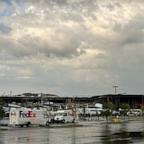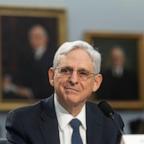Sen. Kennedy's 50 years of notes let him tell 'his story'
WASHINGTON -- Sen. Edward Kennedy's sons on Monday described their father's last year as a bittersweet victory lap in which the veteran Massachusetts Democrat savored an outpouring of affection as he battled cancer to complete his legislative legacy.
"He was still command central down at the Cape," said Rep. Patrick Kennedy, D-R.I., describing how a single phone call by his father from his home in Hyannis Port, on Cape Cod, late last year helped unstick a bill they co-wrote to improve health insurance benefits for victims of mental illness.
He wouldn't tell USA TODAY whether his father left behind any more letters to be delivered posthumously, such as the one President Obama read to Congress last week calling for passage of health care legislation.
Kennedy, 42, and his brother, Ted Kennedy Jr., 47, are giving interviews to promote their father's memoir, True Compass. The book was released Monday, about three weeks after the senator's death.
For the Kennedy patriarch, a competitive sailor, completion of the 532-page volume represents a victory in the final race of his life — the one against a rare brain cancer. "With so many books about the Kennedys, my father wanted to tell his story," said Ted Kennedy Jr.
A polarizing emblem of liberalism for most of his career, the senator in his final year became a symbol of the way personal affection can transcend partisan differences in Washington. His sons said he relished the tributes from colleagues of both parties after his diagnosis was announced.
"He was really able to soak it in," said Ted Jr., an investment banker who gave a stirring eulogy at his father's funeral. He described the last chapter of his father's life as "a gift."
The sons said their father drew on 50 years of notes and diaries in writing his memoir. "Every time he spoke to a head of state or met with a president, he would go back and write down specifically what was said," Ted Jr. said.
In his book, Kennedy apologizes for personal failings, including the 1969 automobile accident that resulted in the death of his passenger, Mary Jo Kopechne. He settles scores with those he believed had wronged him, including CBS newsman Roger Mudd, who asked him why he wanted to be president in 1980, and former president Jimmy Carter. Kennedy also describes a family history so intertwined with the nation's that the Christmas shopping list of his mother, Rose, once nearly set off an international incident.




